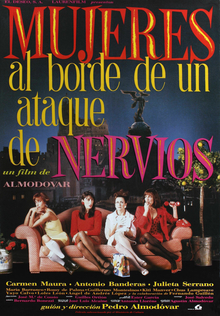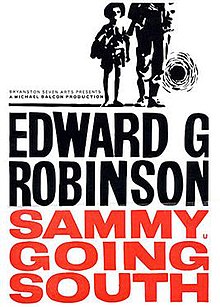
The only important thing now is to save a buck. New York City. Joan Howell (Sandra Dee) intends to be an actress but for now she’s working as a maid. On three different occasions, she and Tom Milford (Bobby Darin) – a successful publishing executive and womaniser – accidentally bump into each other. The third time, Tom asks her for a date. Embarrassed by her own modest rented apartment, which she shares with fellow aspiring-actress friend Audrey (Nita Talbot), Joan invites him to the lavish apartment of one of her clients whom she believes to be out of town for a couple of weeks pretending it’s hers. What she doesn’t know, because she and her employer have never met, is that the apartment is Tom’s. He shocked to find himself being welcomed to his own place but he plays along to see how far Joan’s prepared to go. He then moves in with his friend Harvey Granson (Donald O’Connor) who has his own concerns about Joan to do with his acrimonious divorce and property he’s ‘hiding’ from his wife at Tom’s place. As soon as Joan becomes aware of the truth, however, she figures out how she might get even, starting with getting rid of Tom’s beautiful English-tailored suits … You know I’ve got the funniest feeling somebody’s trying to tell us something. Bobby Darin and Sandra Dee were a seemingly golden couple and this was the third time they were paired together in starring roles. It’s a mild comedy and a silly premise but it’s played for all it’s worth by a nice cast. The screenplay by David R. Schwartz from a story by Norman Barasch and Carroll Moore quickly pits our lovely couple together in a meet-cute scenario that’s the conclusion of a voiced montage about how all kinds of creatures collide: the key takeaway being, Bobby and Sandra can’t miss! How they keep coming back together is the whole show. The zipper’s stuck. Leo G. Carroll plays the heavily Oirish-accented pawnbroker Mr O’Shee, which provides the start of a running gag; Reta Shaw is one of the women who find Tom half-naked in a phone booth and Don Haggerty does a Zasu Pitts as the policeman who cannot believe his eyes on more than one occasion especially when a line of extravagantly garbed prostitutes shows up on his beat. There’s more eyerolling from the reliable Robert (Stalag 17) Strauss and Ben Lessy as bartenders who observe the ups and downs of the romance with pleasantly predictable cynicism. Could be he IS an interior decorator. O’Connor is given little to do which is surprising but Larry Storch does a good job as thespian Luther, ready to give the girls advice on the acting biz. How the knotty but lovely and loved-up pair of midcentury blond gods figure out their essential problem – mutual deception – as they constantly mistake the other’s line of work is fairly fun but it’s the ensemble that really make this PG sex comedy a decent watch. Naturally the title song over the weird (astronomy) titles and credits is written and performed by the redoubtable Darin. Directed by Richard Thorpe. Have you never seen a naked man in a phone booth?











